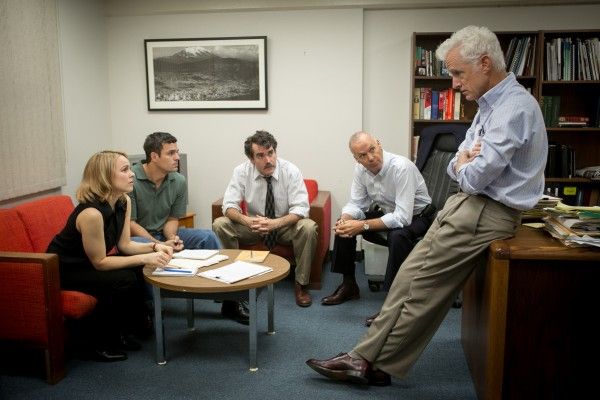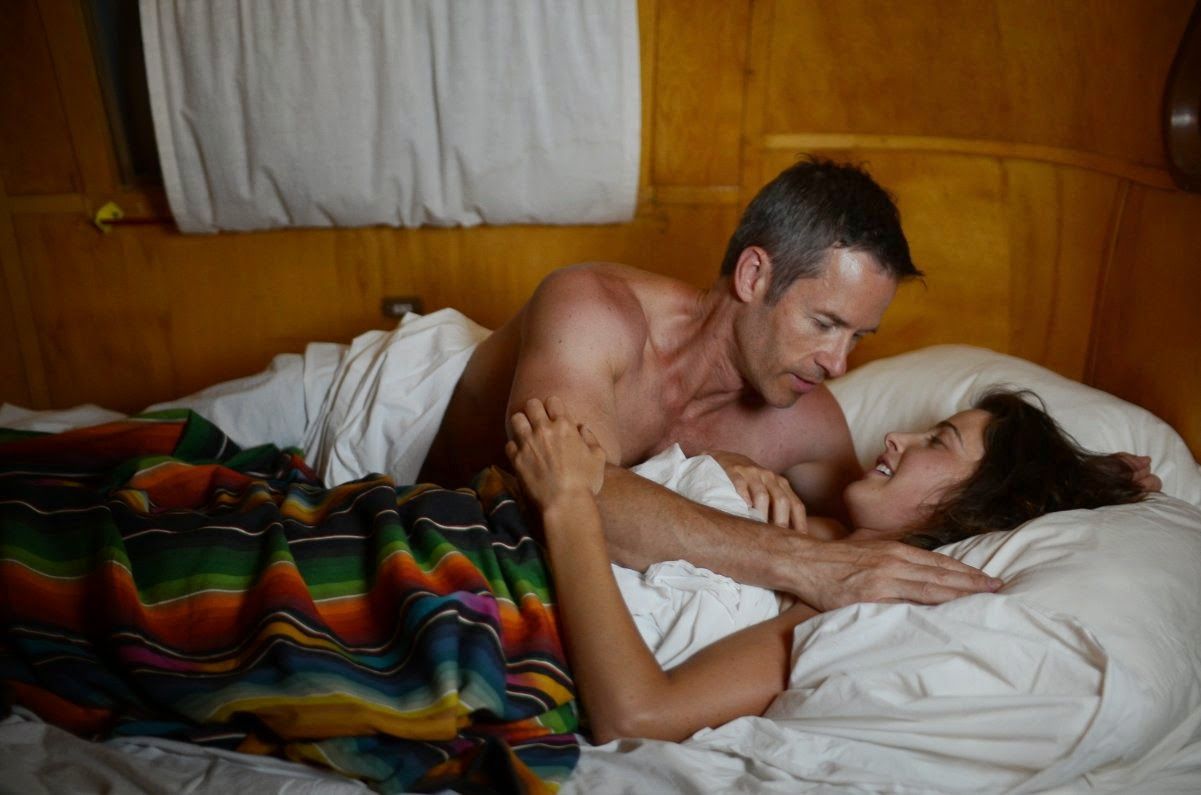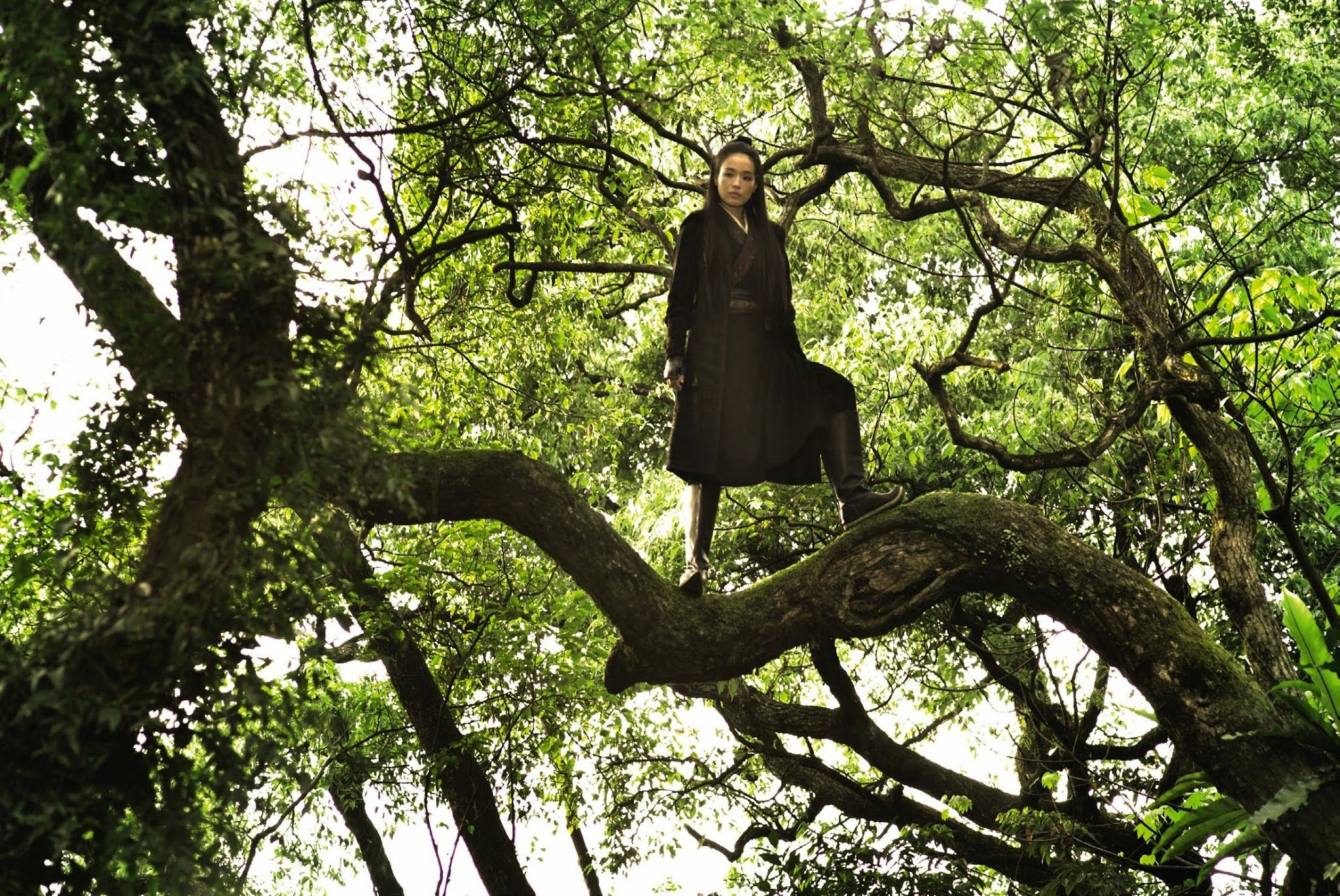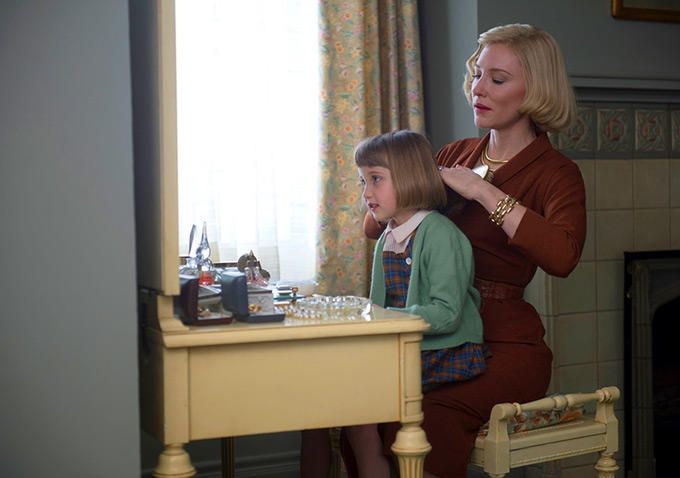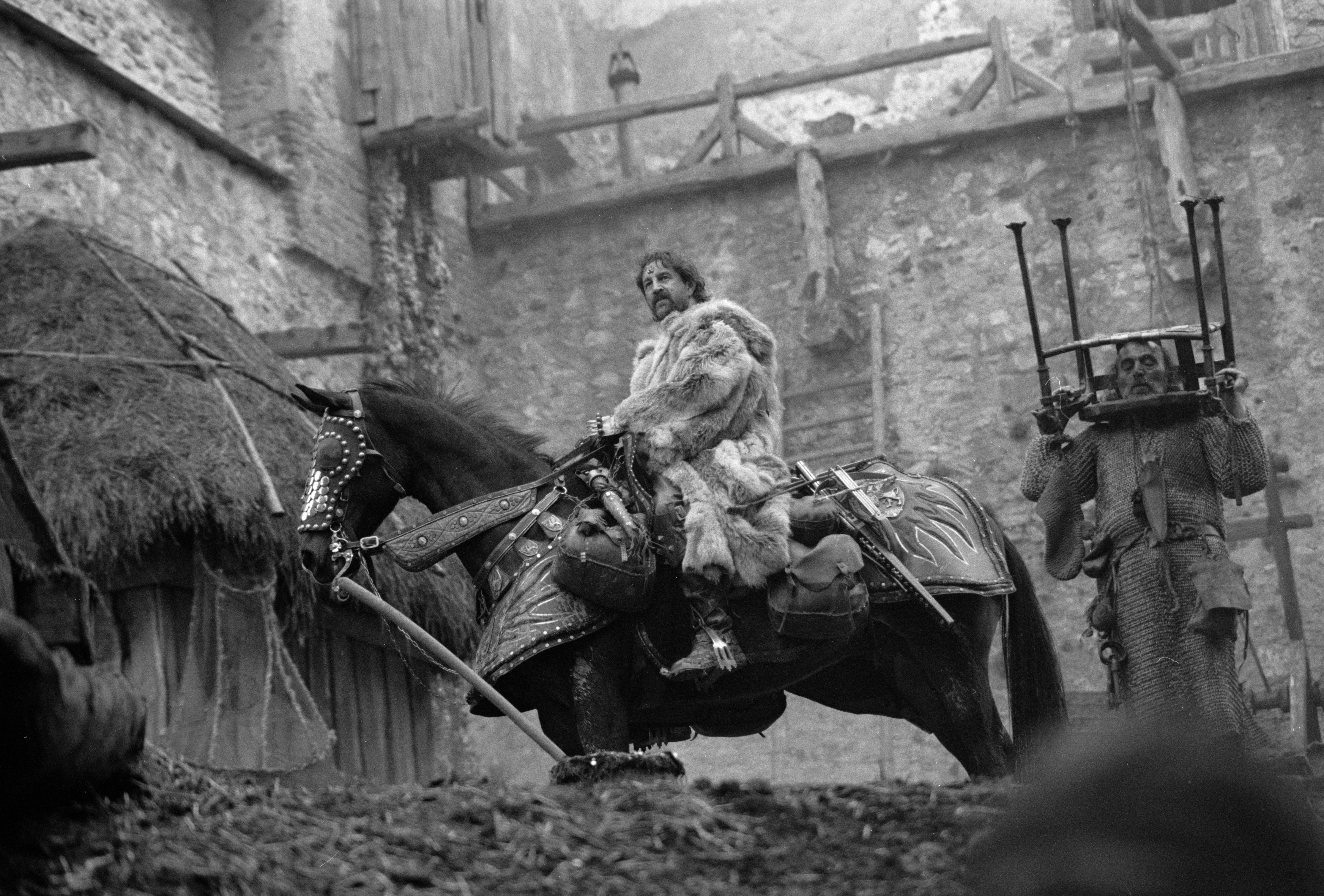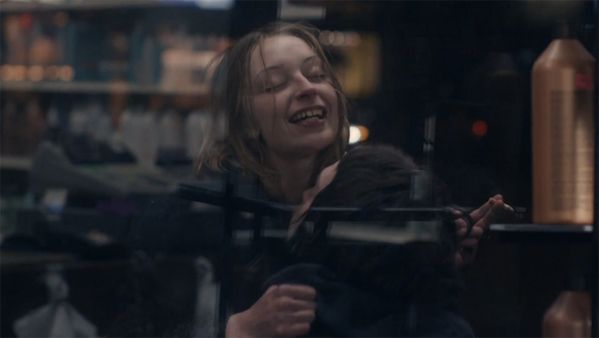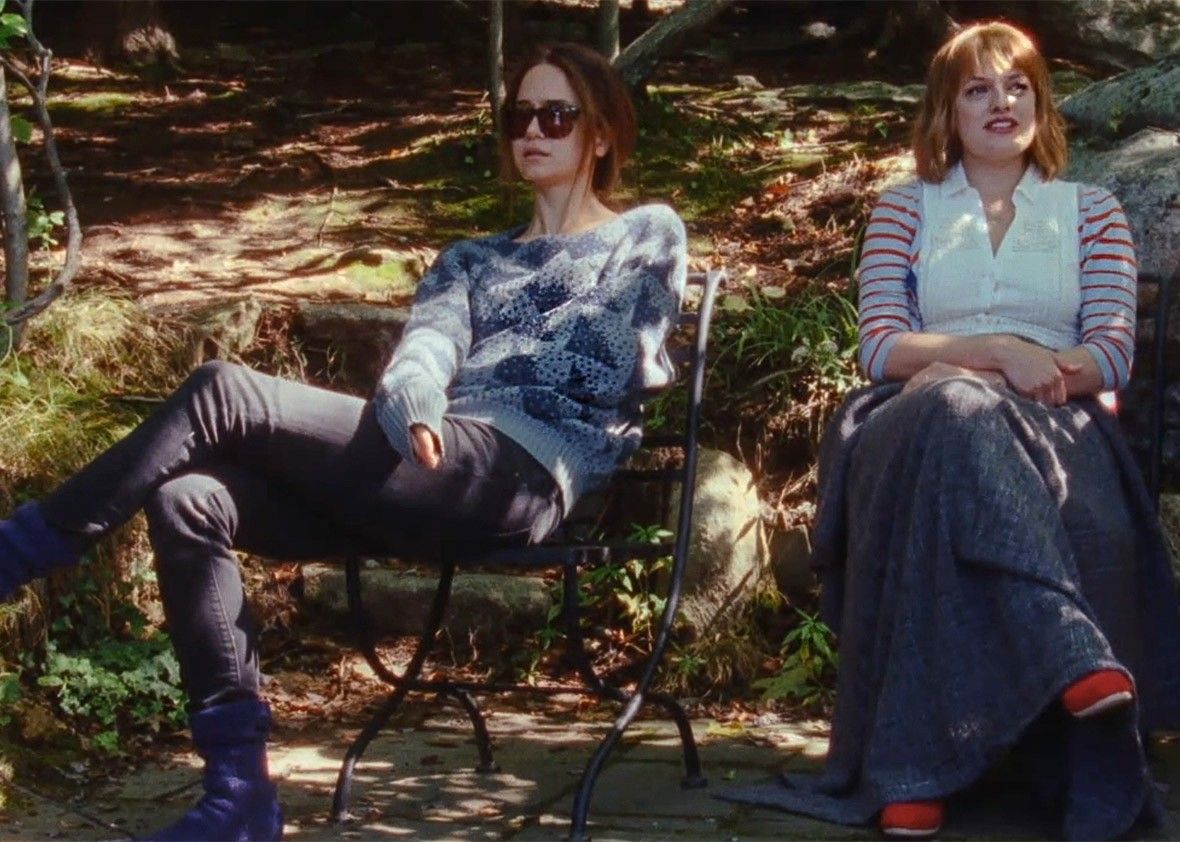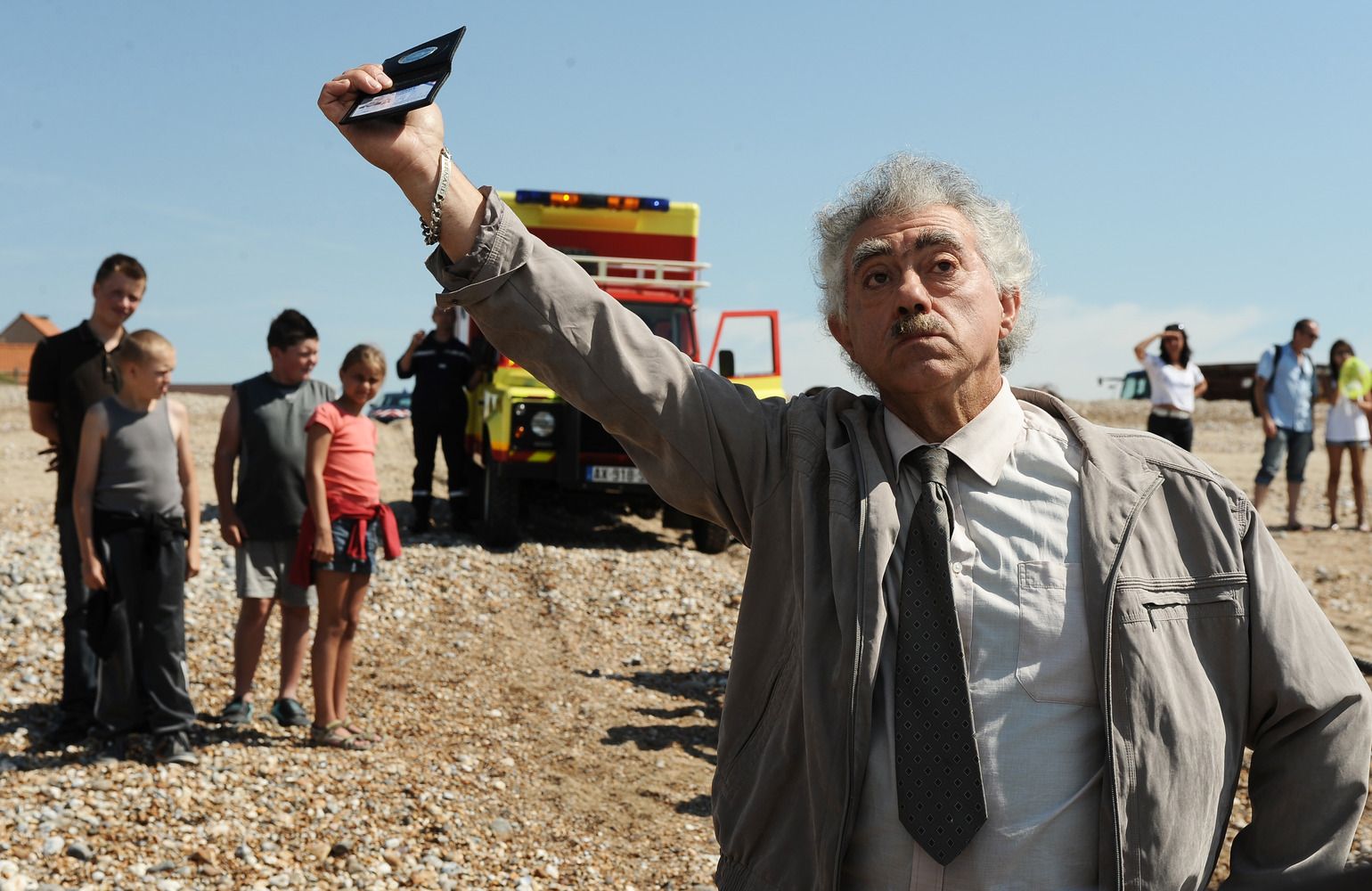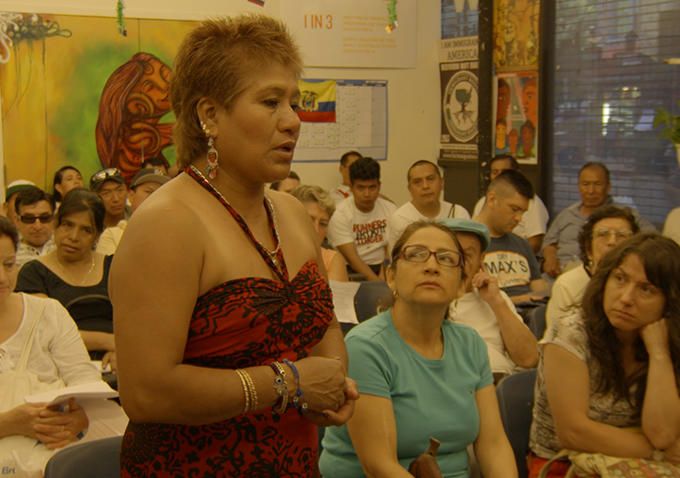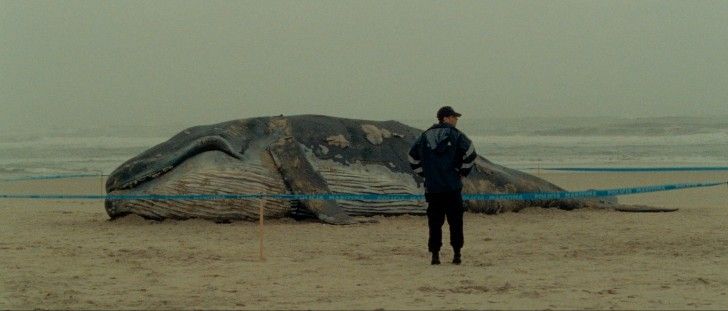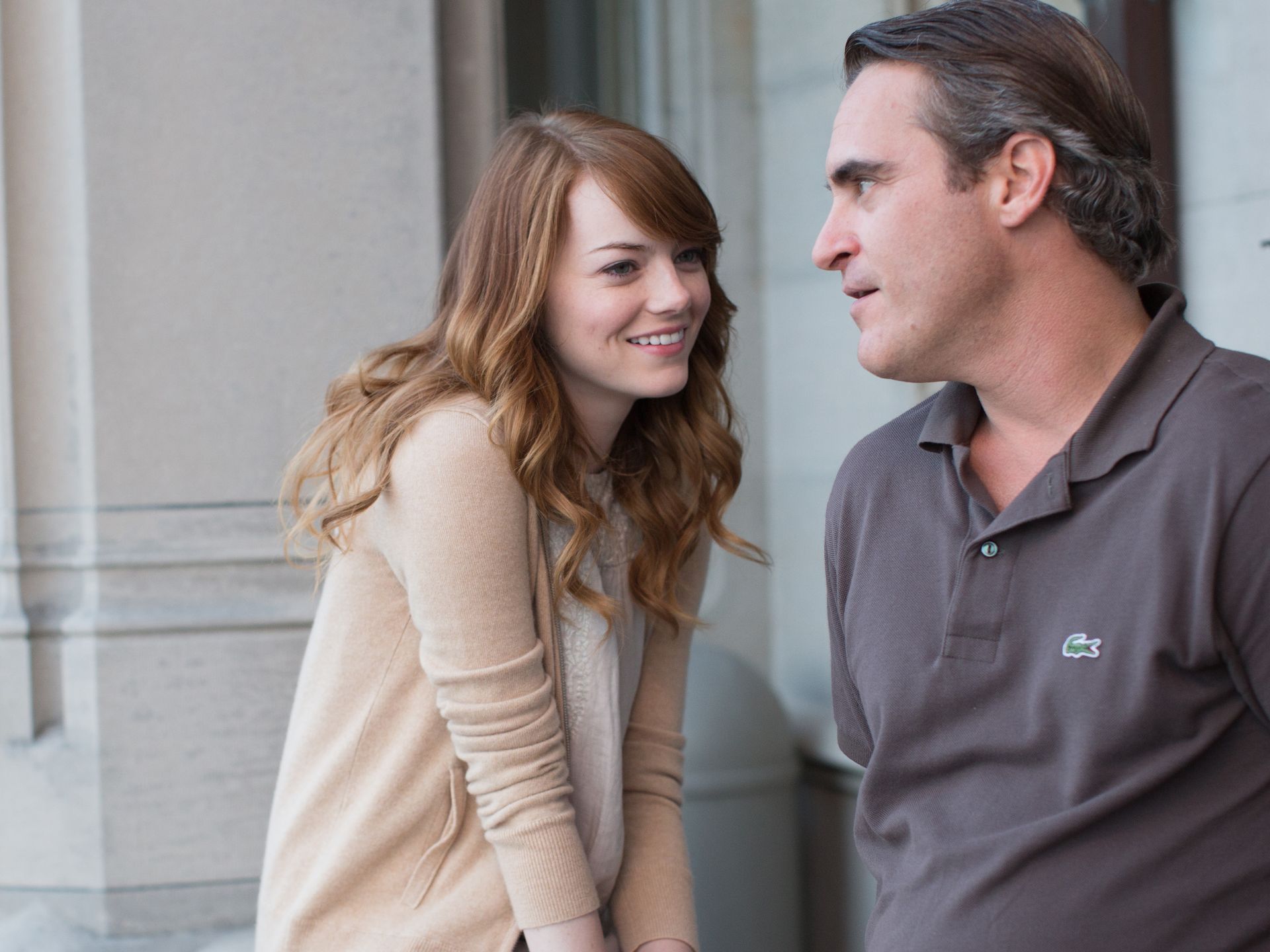It should come as no surprise to anyone that seven of the ten top grossing films of the year were sequels, and that none of them were worth discussing outside of comparisons to the other films in their respective franchises. This isn't entirely a knock, as both Star Wars: The Force Awakens and Avengers: Age of Ultron proved to be adept, intelligent, and lively entertainments, more than worth the price of admission. And beyond all that money, franchises had a very promising year, with Mad Max: Fury Road and Creed suggesting that (gasp!) giving visionary directors like Ryan Coogler and George Miller big-budget projects and allowing them the bulk of control over their production can bring out the absolute best in the major studios. Mind you, Steven Soderbergh quit filmmaking partially because no one would turn him loose on a big-time franchise; Edgar Wright got off the Marvel tilt-a-whirl when his script didn't fit into their narrative schema. What kind of wondrous creation might we have seen if Ava Duvernay had been allowed to genuinely shape Black Panther as her own film rather than toiling as just another cog in the machine? On the other hand, the recent news that Coogler will be helming that particular Marvel film is very promising news indeed.
Despite Miller and Coogler's inarguable triumphs, the very best films of 2015 remained, for the most part, off the beaten path, stuck in the corners of independent production and international distribution. No, you weren't likely to see Ben and Joshua Safdie's Heaven Knows What or Hou Hsiao-hsien's The Assassin at your most local multiplex, but VOD and streaming services have made these films increasingly easy to get ahold of amongst the torrent of mediocrities and half-successes that flooded most major movie theaters this year. In comparison to these masterworks, well-meaning movies like Spotlight and Concussion, with their tidy, agreeable, and ultimately limited perspectives, end up being barely more substantive than those directed by J.J. Abrams and Joss Whedon in my opinion.
The bottom line remains largely simple: openly political, visually expressive filmmakers make for better movies. A good script, though necessary for a great film, only guarantees good theater on its own, and yet many films with solid writing - 45 Years, Spotlight, and Pawn Sacrifice, to name three - skimp on the theatrical imagery to match or, more importantly, challenge the ideas in the script. The films that stuck with me this year played fast and loose with popularized modes of storytelling, both in imagery and dialogue, and tackled touchy subject matter, from racism and fascism to economic turmoil and drug addiction, with a sobering, pensive complexity that wasn't fearful of radical ideas intruding on narrative cohesiveness. So, without further ado, and to put an end to any and all buzz-killing, my top ten movies of 2015:
10. Results
Andrew Bujalski has made some of the best American films – primarily comedies – of the last ten years, from Mutual Appreciation to Computer Chess, but Results is a different animal. Not only has the director finally started working with professional actors here, such as Guy Pearce, Cobie Smulders, and the inimitable Kevin Corrigan, but his loose yet exacting compositions have a certain glossy finish to them. This modest bend towards commercialism and populism is at the core of the narrative’s love triangle, which sees a would-be romance between a physical trainer (Smulders) and her gym-owner boss (Pearce) interrupted by a rich, out-of-shape loner (Corrigan).
Pearce’s character wants to start franchising and Corrigan’s Danny may have the key to that enterprise, but the closeness of the relationship causes a few waves, to say the least. In effect, Bujalski contemplates the loss of intimacy and persona when one goes big-time, and he litters his screen with characters that are both organically realized and slyly symbolic, from Anthony Michael Hall’s franchise king to Giovanni Ribisi’s sleazy lawyer. And yet, for all its intellectual force, Results is first and foremost a great romantic comedy, brimming with guffaw-laden observational and physical gags, and backed by one of Bujalski’s most inventive scripts to date. Unlike many Hollywood filmmakers, the young director makes a strange but completely convincing case for giving him a crack at bigger ideas and budgets at once.
09. The Assassin
Oh, the things we do for love. Hou Hsiao-hsien's long-awaited entry into the wuxia genre features breathless fighting sequences, often masked or hemmed in by the gorgeous coverage of nature, and an abundance of Chinese politics to hash out, but the film's thunderous heart is a broken one. Hsiao-hsien's latest centers on the titular killer for hire, Nie Yinniang (Shu Qi), who is dispatched to slay her cousin, Tian Ji'an (Chang Chen), whom she was meant to marry once, before she took her oath to her master. Her journey to his palace in the Weibo province is fraught with other hunters, and the filmmaker makes grand, active sequences out of these encounters, all while suggesting his own subject view of the world via shots of his heroin stalking along the periphery, cloaked by shadow, nature, and household materials.
And yet, it's the unbearable sting of being tossed aside, for little more than political and familial gain in the imperialist age of the Tang Dynasty, that drives Nie and, ultimately, this sublime film. When she finally meets face-to-face with Tian, Qi emanates fury and hurt in equal measures, and Chen, one of China's greatest living performers, embodies the increasing hollow feeling for a political system that's strictness, elitism, and lack of progress have turned him bitter. The intricacies of the intertwining historical and political motives are the fuel for, and a reflection of, the lovers' discontent, set against bucolic vistas that can barely contain skilled, physical feuds.
08. Carol
Another love story, although finally a bit more happier one than The Assassin, if just as tormented. Whereas Todd Haynes' obsession with Sirkian aesthetics nearly rendered Far From Heaven calcified, Carol pushes pass any glimmer of stylistic aping and finds something far more personal from the great filmmaker. The period detail in the production design and the script are, naturally, glorious and glowing, laced with a dazzling array of colors, but its the grainy look of the film that gives the film a distinct flavor that goes well beyond nostalgic gimmickry.
In terms of style, Carol feels stuck in the past, and that's precisely what Haynes is after. Modern American perspectives of love stories tend to romanticize the era of the 1950s, and by giving his film the dressing of the era, he expresses a kind of repression while also breaking past it with the more modern touches of the story of a rich ex-wife and a salesgirl who fall head-over-heels for each other. Rooney Mara's quiet yet direct performance summons the perilous balance between personal desires and public conception, while the ever-luminous Cate Blanchett gives a feverish kind of bloodrush to an image of a woman who society has attempted to ruin, but has failed to completely destroy. As the film's bookends suggest, while once this kind of union just didn't have a happy ending in our society, now there is, after so much time, real hope.
07. Hard to Be a God
One last howl of frenzied, grotesque madness from the late Aleksey German, one of Russia's great post-war voices, comes in the form of this black-and-white nightmare of a science fiction tale. Set on the fictional planet of Arkanar, where the human-like inhabitants of the planet still live in a Medieval society, German's long-awaited follow-up to his feverish, fantastic Khrustalyov, My Car! offers a harrowing reflection of Mother Russia under Papa Putin, with Leonid Yarmalnik's kingly Don Rumata stalking through a wasteland of a world marked by mud, menace, blood, and shit.
In terms of sheer watchability, Hard to Be a God is a trial by disgust, repelling the viewer with relentless filth and horror as Rumata, who is believed to be a son of God, ponders the muck of humanity: power, greed, sadism, blood-thirst, and all that other good stuff. German fashions an abominable cinematic world that's impossible to gaze away from, fashioned out of luxurious long takes and a production design that's heavy on the indiscriminate sludge, and yet the language is a sumptuous, dreamy scree of absurd mythologies, finding a strange, all-consuming poetry in a despicable land ruled by carnage and the reactionary justice of lawlessness.
06. Heaven Knows What
Having already given the sports documentary (Lenny Cooke) and paternal melodrama (Daddy Longlegs) their own sobering spin, the brothers Safdie – Ben and Joshua – turned their eyes to drug addiction with their fourth and best film yet. Adapted from Arielle Holmes’ memoir of heroin addiction and homelessness in New York City, and starring the author as a version of herself, the film’s root is a familiar intertwining of love and addiction, between Holmes’ Harley and her metal-loving, manipulative betrothed (Caleb Landry Jones).
When they split, early on in the film, Holmes’ character goes on an odyssey to get money and score, and the Safdies, working closely with their cast, invoke myriad inventive routes to getting a dollar, to say nothing of their preternatural knowledge of New York City nuance and geography. By the borderline surreal end of this harrowing tale, the Safdies not only offer a close-to-the-vest, heartbreaking depiction of the emotional and psychological roots of addiction, but have fashioned a strange allegory for the business of funding and making obsessive art.
05. Timbuktu
Though not nearly as experimental as his previous masterpiece, Bamako, Abderrahmane Sissako’s Timbuktu exudes just as much political anger and societal frustration in its study of the titular West African city under siege by Jihadists. The narrative intertwines the cold brutality of the “religious” savages taking over the city and a remote crime in the dunes outside of the city, where a calf herder and a fisherman dispute the murder of an animal. The filmmaker gives the latter disagreement and slaying the philosophical weight and simplicity of a parable, occurring in a violent moment amongst water and sand, whereas the so-called holy war that the jihadists wage is presented as graceless dullards with guns exerting a thoughtless obsession with control and power.
For Sissako, who comes from Mali, the jihadists are not men of god but men who wish to usurp god by means of artillery, to liquidate expressions of faith that divert from violent, uncomplicated fanaticism. His film is at once warm and horrifying, politically formidable and aesthetically ambitious, and underlines that the blessings of faith come from accepting communities rather than isolating judgments.
04. Queen of Earth
Alex Ross Perry’s fourth feature approaches mental illness with a rarely seen seriousness but doesn’t allow this seriousness to limit its audacious tone, panic-baiting aesthetic, or dialogue, which burns with personal, lacerating experience. Essentially a battle of wills and righteousness between two would-be best friends, played with adventurous dramatic mettle by Elisabeth Moss and Katherine Waterston, Queen of Earth finds Perry conflating space and psychological temperaments with a similar simultaneous fearlessness and paranoia as Polanski, as well as a hunger for culture and bucolic surroundings that recalls prime Rohmer.
Perry’s thriller doesn’t feel stuck in the mold of either influence or beholden to a familiar sense of closure, instead letting the full impact and helplessness of depression reveal itself in the two extraordinary lead performances and in sly symbolism, such as a salad that sits at Moss’s character’s bedside table. Though not as sprawling and narratively ambitious as Listen Up Philip and The Color Wheel, Perry’s latest similarly uses prickly cynicism as the entryway into worlds of bitter disappointment and familial torment that are often passively detailed in complacent, clinical imagery. In opposition, Perry’s aesthetics and visual rhythms aim to cut and let the wound bleed.
03. Li'l Quinquin
Bruno Dumont’s bleak perspective finally gives way, to an extent, in Li’l Quinquin, and the result is the most generous and, yes, best film of the French filmmaker’s estimable career. As a quixotic, buffoonish detective and his reasonable but subordinate partner attempt to find a killer who has seemingly been stuffing body parts into living animals – the first body is found inside a cow – Dumont sketches the day-to-day life of a small provincial town in intimate strokes: a late-night talent show, a haphazard funeral, a police stand-off with an angry teenager, and a buoyant parade each relate a humming sense of the small town’s communal pulse.
Dumont also makes time for a smattering of local politics and racial tensions, but the giddy wonder of this three-hour-plus marvel comes from the dichotomy of the detectives and the group of kids led by the titular ruffian who both bound recklessly around town and form quietly heartening relationships. Not unlike Wes Anderson’s triumphant Moonrise Kingdom, Dumont’s film, originally released as a mini-series in France, gets at ideas of age, maturity, and righteousness, ultimately suggesting that though adults may have some semblance of wisdom, children are capable of as much instinctual knowledge and emotional clarity as their elder counterparts.
02. In Jackson Heights
It’s been a good decade thus far for Frederick Wiseman, the grand emperor of cinema verite. His last two films, At Berkeley and National Gallery, landed high on my previous lists, as they offered totally engrossing depictions of the titular institutions, stuffed with so many bright ideas that even their extended run times – each clocked in at around four hours – seemed a bit short. There’s a similar feeling that comes by the end of his latest opus, which swirls around the titular Queens, New York neighborhood to find not only the unpredictable and tender pulse of life in one of America’s most diverse stretch of land, but also locate something like the very essence of America itself.
Wiseman delights in churches, where prayers to the living and the dead are given, small bodegas that allow for blunt discussions about low-wage day labor and gentrification, and several discussions about its place as a stronghold for gay rights. If there is a through line to Wiseman’s enrapturing gaze, it’s the plan for an upcoming gay-rights parade honoring a young homosexual man who was slain in the area, and the documentary filmmaker’s point-of-view is finally that communities are meant to protect rather than simply enclose, reach out generously rather than simply advertise. Most importantly, Wiseman finds a melting pot of race, gender, religion, and sexuality without limiting the experiences of these groups to a single conception or struggle, instead displaying the wild, uneasy harmony that exists when people are allowed to do their own thing while also offering safe haven for their neighbor, whoever they happen to be.
01. Arabian Nights
No film has so strikingly considered the fallout of the economic meltdown of the late aughts as Miguel Gomes’ Arabian Nights, which pushes off on its sublime adventures from modern-day Portugal, one of the most devastated country’s to be involved in the fiasco. Gomes includes the early movements of the production of his film in the narrative, and immediately intertwines the loss of jobs with a natural phenomenon in the increase of a loathed insect.
This proves to be just the tipping point of this six-hour spellbinder, which transposes Gomes’ own concerns with being a cinematic storyteller to the legendary Scheherazade (Crista Alfaiate), who must tell increasingly entertaining stories to keep her murderous husband happy. From here, Gomes gives us a surpassingly generous series of inventive tales of small Portuguese communities marked by absurdist judgments and trials, from a rooster facing the death penalty for crowing to a dog being passed around between tenants of an apartment building to an old communist’s discovery of a beached whale.
Like his previous films, Gomes keeps animals at the forefront of these stories, for the most part, as to suggest how close we all are to falling into the anarchy of beasts. And yet, there is an inexplicable grace that belies his formidable skepticism about the world at large, plagued by humanity’s self-obsession and lack of empathy. Gomes is a cynic but he doesn’t allow that to overcome his belief that goodness does exist in some scant forms. He mixes in large passages of documentary footage into this staggering endeavor, detailing the struggle for work and the social fallout of fiscal failure, but the entire thing works as a cohesive whole, with fact and fiction constantly refracting images of one another, finding the truly unbelievable in modern living and the painfully familiar in fiction tinted by the fantastical.
Honorable Mentions
In no specific order: Chi-raq, Approaching the Elephant, Irrational Man, Da Sweet Blood of Jesus, Creed, Uncertain Terms, Mistress America, Stinking Heaven, Entertainment, Mad Max: Fury Road, Wild Canaries, Maps to the Stars, Young Bodies Heal Quickly, When Evening Falls on Bucharest, The Princess of France, Horse Money, Taxi, Jauja, Of Men and War, Field Niggas, Iris, and Junun
For much more of Collider’s Best of 2015 content, click here, and peruse our other editor’s Top 10 lists below:


